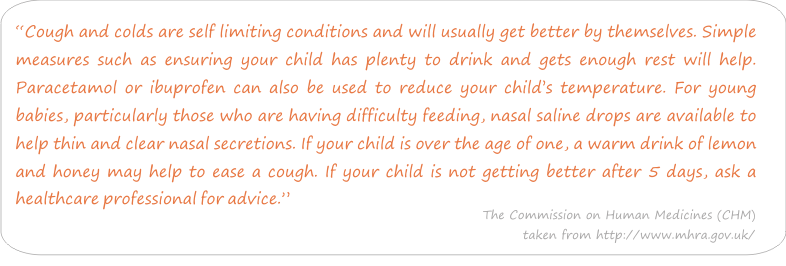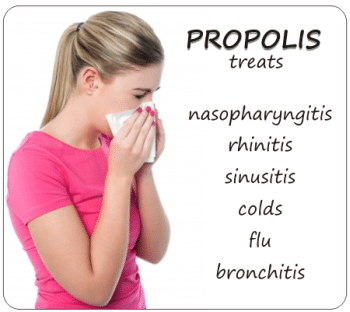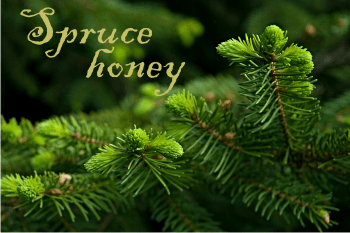It does. Give your children honey, and it will calm their coughs naturally and easily!
A cough is a reflex action of our body to clear the airways of mucus and irritants, such as dust or smoke. It is natural and good, because it is how our organism is protecting itself.
There are two types of coughs: dry or chesty (or wet).
Dry cough: We feel them as tickles in the throat. This happens when the throat and upper airways become inflamed (swollen). There is no phlegm (or thick mucus).
The common cold or flu causes a dry cough because the inflammation is in the upper airways, and our brain thinks there is a foreign object there and tries to remove it by coughing. At least this is what doctors tell us, though I don’t believe it. Our brain is not stupid, and it’s not easy to fool.
Chesty coughs usually produce phlegm. The cough is helpful, because it clears the phlegm from your lung passages.
Trying to help our children and smooth their coughs, the pharmaceutical market offers a series of drugs, that try to help.
Are the cough and cold medicines in pharmacies good for our children?
Aaaa….No.
Ever since 2007, The Commission on Human Medicines (CHM), in Britain, advised about how to improve the safe use of cough and cold medicines for children under 12.
• For children under 6, they say parents and carers should no longer use over-the-counter (OTC) cough and cold medicines. Why? Because there is no evidence that they work. Even more, they can cause side effects, such as allergic reactions, hallucinations, or other sleep effects.
• For 6 to 12 year olds, these medicines will still be available in pharmacies, but with clearer advice on the packaging and from the pharmacist. This is because the risks of side effects are reduced in older children because they weigh more, get fewer colds, and can say if the medicine is doing any good. They are still researching on how well these medicines work in children aged 6-12 years. Yet, even though the side-effects can be reduced, there is still no proven evidence of their efficiency.
So, what does CHM advise us to do, when our children catch a cold and cough?

And that’s about it from our allopathic medicine. And they do admit the efficiency of honey and lemon. Check here the list of medicine we can still give to our children. Still, remember the commission’s advice.
When asked what cough suppressant to give to a baby, Dr. Cindy L. Juster on healthtap.com, said “Cough medicines, in study after study over the last 27 years, have been proven ineffective and can have some bad side effects. This is why the FDA has finally started taking them off the market! Saline nose drops & suction, elevating the head of the mattress, and a cool mist humidifier work much better, and without the side effects.”
What are the natural ways to treat common colds and coughs?
- Chicken soup. Though it may sound like a cliche, the studies have shown that chicken soup really helps in respiratory tract infections.
- Honey. It is considered the best natural remedy for colds and coughs. In a very popularized study, children age 2 and older, with upper respiratory tract infections were given up to 2 teaspoons (10 milliliters) of honey at bedtime. The honey reduced nighttime coughing and improved sleep. We can find different products containing honey in a pharmacy, in different combination, the most common are cough drops. My recommendations are: honey and cinnamon, honey and lemon, honey and apple cider. I will detail them later.
- Propolis. Especially for the sour throat, the drops are very efficient. Here is more info about propolis.
- Avoid dairy. Drinking milk make some people produce more mucus. According to webmd.com, this happens because of our gustatory rhinitis which cause a reflex reaction, triggered by eating. For example, the nose runs when eating hot peppers. In some people, the milk proteins will cause the same type of reaction. And as you don’t know if your child is among those people or not, it is probably better to avoid milk. Especially before bedtime.
- Saline nose drops or sprays. They clear the blocked nasal passages. Don’t overuse them.
- Humidifier. Increasing humidity in the room of your child reduces congestion and helps him breathe better.
- Rest. A rested body can better fight the disease. Sleep as much as you can. Use some honey if you cannot sleep too well. (see Sleep disorders cures)
- Back massage. It will invigorate the entire organism and help the lymphatic system.
- Aromatherapy. Use a candle with a few drops of eucalyptus, peppermint, basil, sage, pine, fir. Switch them according to your personal desire, and notice which one has better effect in your child.
• The best natural remedies for colds – summary
• Cold remedies with honey
Honey cough drops
There are a lot of honey drops on the market, but if you are not comfortable with the additives in them, you can make them at home. I found an interesting recipe here, you can give a try. Though I personally don’t like the fact that honey is boiled, destroying its nutrients.
Honey and cinnamon
One tablespoon lukewarm honey with ¼ spoon of cinnamon powder daily, for three days. This will cure most chronic cough, cold, and clear the sinuses. Read more about the benefits of honey and cinnamon.
Honey and lemon
In one cup of honey add 3 tablespoons of freshly squeezed lemon juice. Add ¼ cup of warm water and stir until smooth. Take 1-2 tablespoons of the mixture at the first sign of cough and be sure to take a dose before bed for a good night’s sleep.
To this mixture we can add other superfoods like: ginger, coconut oil, or garlic (if your child accepts it).
(also see January’s health recipe. Treat your sore throat naturally and What stimulates immunity? What protects us from colds? Here is November’s health recipe.)
Honey and apple cider
One tablespoon apple cider and one teaspoon of honey will make a perfect mixture that will eliminate cold symptoms very quickly. It is also helpful when the cold is accompanied by a sore throat.
BE ALERT IF
If a child has a bad cough that won’t go away, it may be a sign of a more serious respiratory tract infection. We should check the symptoms of whooping cough, especially in young children and babies and go to see a respiratory specialist. Those symptoms are:
– intense, hacking bouts of coughing, which bring up thick phlegm
– a ‘whoop’ sound with each sharp intake of breath after coughing
– vomiting in infants and young children
– fatigue and redness in the face from the effort of coughing
These symptoms may appear after infection with the Bordetella pertussis bacterium.
FROM OUR READERS:
Via Google+ I have received another recipe from Elijah, one of my honey-lover readers, the owner of howtoearnextracash.siterubix.com.
“I use milk, butter and honey all together in a small souse pot, over a mid heat till all mixed up It works on me, my kids, my wife and anyone I give that mixture to, just use it before night time or you’ll feel tired and sleepy. Honey works every time…”
Thank you, Elijah.
************\
References:
http://www.mhra.gov.uk
http://www.med-health.net;
http://www.webmd.com;
picture credit: Winnie; bee



